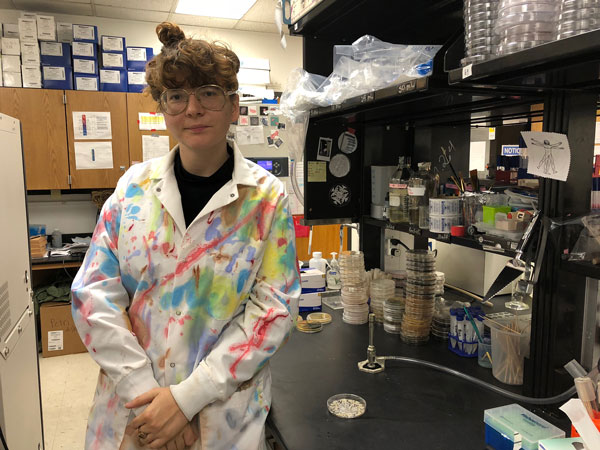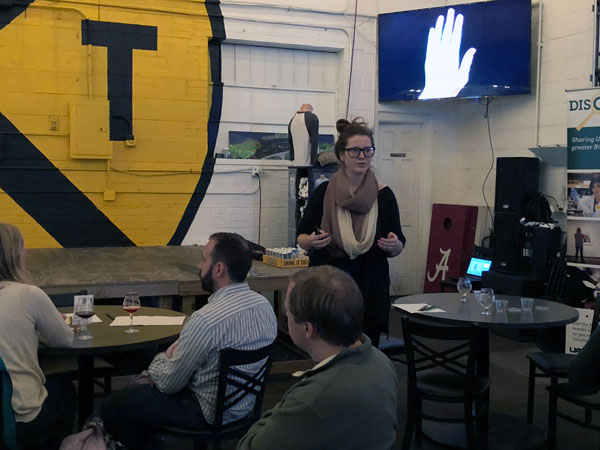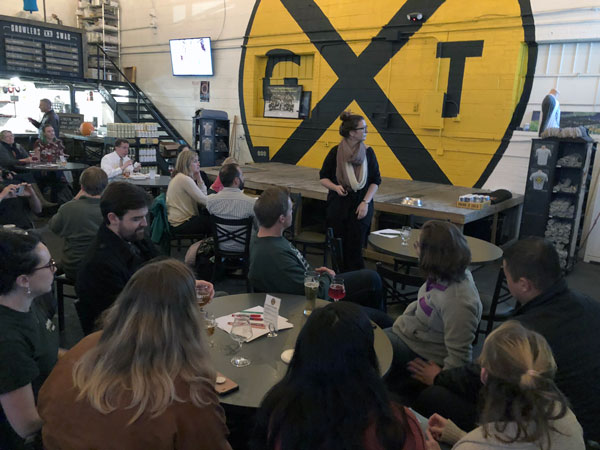“Science is hard.”
This is what third-year graduate student Sarah Adkins was told by a science professor as an undergraduate when she developed test anxiety that caused spasms in her hands – turning them blue!

Most of us are familiar with how difficult science is. Most of us have gone through the grind, and many of us are still in it. But Adkins was frustrated by this mentality, initially thinking that her frustration reflected shortcomings of her own. Yet when she stepped into an art classroom, she recalls being told “everyone in this room has the potential to be an artist” and it struck her how different this mindset was compared to science.
Science is hard. Only approximately 60 percent of undergraduate students who start out pursuing a STEM degree actually finish it. So, how do we take the all-inclusive mentality of that art class and apply it to science?
This is where Adkins’ work comes in. Her work has revolved around the idea of reforming science education to incorporate a dynamic and exploratory curriculum. Working with her mentor, Dr. Jeff Morris in the department of biology, she has designed a microbiology class in which students learn by doing, rather than being told. Students collect soil samples from around UAB, isolate the microbes and create “agar art” by plating the bacteria on agar plates in unique designs.
The results are impressive. By allowing students to exercise some creativity, they develop a desire to learn more, ask their own questions and design their own experiments, much like we do in the lab every day. It’s been so successful, in fact, that students are about 20 percent more likely to find scientific inquiry more interesting and are more likely to feel confident in being able to create their own research projects. Perhaps this is exactly the kind of curriculum that will make science more relatable to students, and more importantly, make students excited about science in undergrad.
One student sums the experience up well: “In this lab … it really does show you that not only is science like academic like they always taught you that it was, but it’s also a creative endeavor and you have to be able to think through things.”
Unfortunately, this reformation is not without pushback.
“A lot of decisions are beyond my control, which can be frustrating,” Adkins said. “We have the evidence. It’s significant. But sometimes, scientists are not swayed by data when it comes to teaching, despite a third of their students not passing their classes.”
Luckily for Adkins, the National Science Foundation feels differently, and she has funding to pursue this educational reform and continue to help students connect with science.
“I found my voice,” she said. “My main work … is about affording students similar opportunities.”

